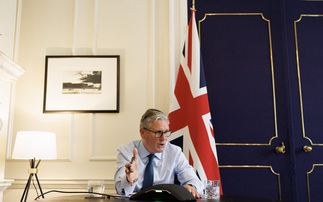Jane Burston of Carbon Retirement hears how corruption is limiting forest protection and monitoring activities
REDD, the mechanism to reduce emissions from deforestation and forest degradation, has been one of the areas in which considerable progress has been made over the past two years. In 2010 alone, Norway...
To continue reading this article...
Join BusinessGreen
In just a few clicks you can start your free BusinessGreen Lite membership for 12 months, providing you access to:
- Three complimentary articles per month covering the latest real-time news, analysis, and opinion from Europe’s leading source of information on the Green economy and business
- Receive important and breaking news stories via our daily news alert
- Our weekly newsletter with the best of the week’s green business news and analysis







